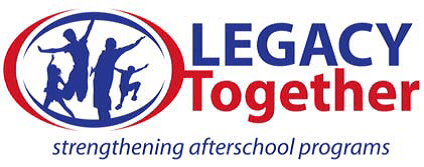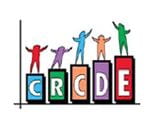RESEARCH
Other Projects
LEGACY Together: Strengthening Afterschool Programs
The LEGACY project was a longitudinal study with a randomized trial that focuses on afterschool sites as places of intervention for ethnically diverse school-aged youth. This applied research project concentrates on improving afterschool programs, which in turn can enhance youth’s well-being. Using data from this project, we are addressing several research questions:
- How do school-aged youth perceive their neighborhoods?
- What neighborhood characteristics, both objective and perceived, are associated with youth’s racial attitudes?
- Do racial attitudes mediate or moderate the association between neighborhood characteristics and youth outcomes (e.g., academic and behavioral)?
This project is funded by the W.T. Grant Foundation, Wallace Foundation, and National Institute on Drug Abuse.

Center for Research on Culture, Development, and Education (CRCDE) Early Adolescent Cohort (EAC)
The CRCDE EAC Study was a longitudinal project focused on understanding how contextual factors and individual attributes influence academic outcomes. The project includes multiple sources of data, which has allowed us to investigate how urban families from various ethnic and socioeconomic backgrounds perceive their neighborhoods. In addition, we have examined how neighborhood characteristics are associated with adolescents’ psycho-social, behavioral, and academic well-being.
This project is funded by the W.T. Grant Foundation and the National Science Foundation.

Welfare, Children, and Families: A Three-City Study
The Three-City Study is an ethnographic investigation of the well-being of low-income children and families after substantial revisions to US welfare policy. The primary research question addressed with these data is what are the differences and/or similarities in adolescents’ contextual social capital (i.e., friendships)? Specifically, we focus on education-focused and protection-focused friendships across contexts. If the adolescents’ friendships are education-focused, what types of friends do they have in school; do they choose similar friends in the neighborhood. If protection is an important characteristic of friendships, do friends look similar in both contexts (i.e., school and neighborhood)? Furthermore, how adept are adolescents in distinguishing their contextual needs? Secondary research questions include:
- Do parents distinguish between school and neighborhood friends, and
- How aligned are parents’ and adolescents’ perceptions of friends across/within context?
This project was funded by numerous foundations and federal agencies.

Context and Linkages
The Context/Linkages project, led by Dr. Susan Ennett, was a longitudinal study that examines the development and interrelationships among rural adolescent risk behaviors and the contribution of individual and contextual attributes to the development of such behaviors. The project includes adolescent, parent, and census data. Using data from this project, we examine rural perceptions of neighborhoods, how neighborhood characteristics are associated with academic outcomes, how parenting may vary as a function of the neighborhood, as well as explore the heterogeneity in neighborhoods (i.e., identify neighborhood typologies).
This project was funded by the National Institute on Drug Abuse and the Centers for Disease Control and Prevention.